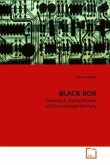The rapid growth of the Internet has drastically
altered the scene of human communication and
presented new challenges to traditional
cross-cultural adaptation (CCA) research. This book
is intended to bridge CCA and Internet research by
examining the role of the Internet in the
cross-cultural adaptation process. The researcher
explored how different Internet use patterns, in
terms of amount and type (host Internet use and
ethnic Internet use), affect Chinese students
sociocultural and psychological adaptation to the
American culture. A model of Internet use in CCA was
proposed and tested. The results showed that
individual differences, Internet use motives and host
Internet use are significant predictors for
psychological adaptations. It is hoped that the study
will not only draw more attention from intercultural
communication scholars in studying CCA in the new
media environment, but also will shed some light on
the social and cultural consequences of Internet use
in a unique context.
altered the scene of human communication and
presented new challenges to traditional
cross-cultural adaptation (CCA) research. This book
is intended to bridge CCA and Internet research by
examining the role of the Internet in the
cross-cultural adaptation process. The researcher
explored how different Internet use patterns, in
terms of amount and type (host Internet use and
ethnic Internet use), affect Chinese students
sociocultural and psychological adaptation to the
American culture. A model of Internet use in CCA was
proposed and tested. The results showed that
individual differences, Internet use motives and host
Internet use are significant predictors for
psychological adaptations. It is hoped that the study
will not only draw more attention from intercultural
communication scholars in studying CCA in the new
media environment, but also will shed some light on
the social and cultural consequences of Internet use
in a unique context.








